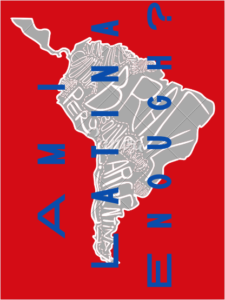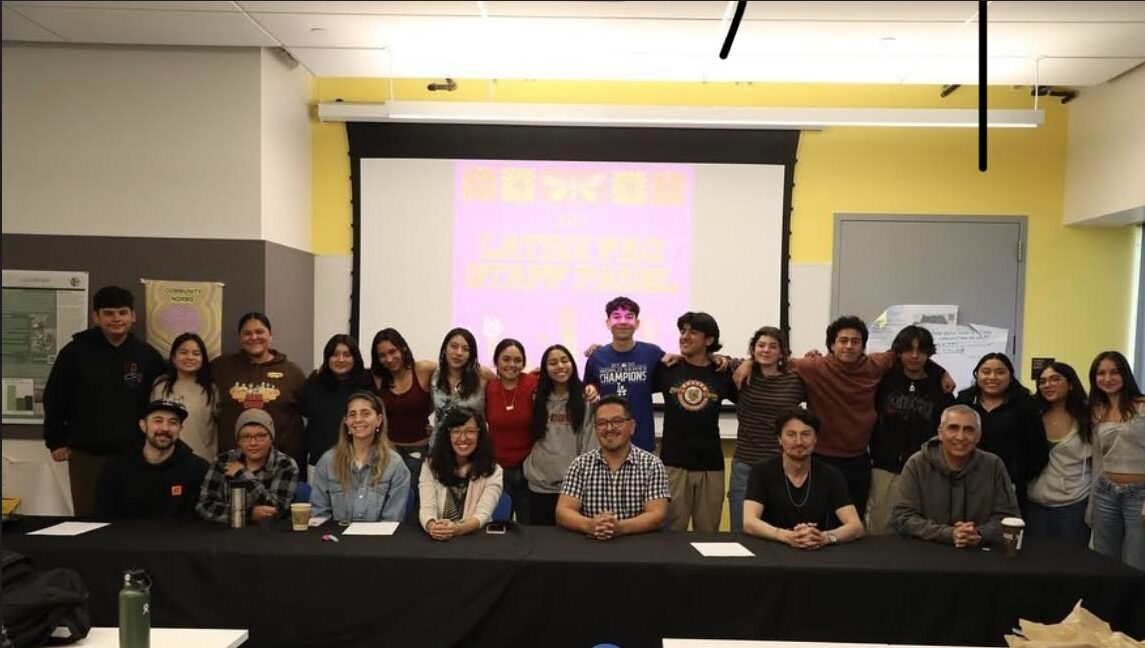
photo by Gabriela Gauna-Torres
My experience at Lick-Wilmerding High School, a predominantly white institution (PWI), is vastly different from my previous experiences in elementary and middle school, where, as a Latina, I was a part of the ethnic majority. At LWHS, I am now exposed to settings with students who identify differently than me—racially, ethnically, culturally, religiously, socioeconomically—which has influenced my outlook on social matters. At times, the lack of a large and diverse community of Latinos at LWHS makes me feel less connected to my language and culture, making me question my authenticity as a Latina. Because of that, I frequently ask myself, “Am I Latina enough?”
The term ‘Latino/Latina’ defines a diverse range of identities, experiences and cultural backgrounds within the Latin American diaspora. Latinos are represented in a multitude of shapes, sizes, colors, religions and cultural backgrounds. Generally, Latinos speak or are frequently exposed to Spanish, are often Catholic, and have roots to one or more Latin American countries. Nonetheless, the Latino identifier is built upon individualistic experiences, with each person navigating their latinidad, or how Latino they would like to present themselves, in diverse manners and rates.
Growing up, I only used the term Latino/Latina to describe my ethnic background. It is an identifier to narrate my own lived experiences that are deeply connected to my Colombian and Mexican roots. Being Latino is not about how I look, the way I dress, if I speak Spanish or not or how I present myself to the world. Instead, being Latino is the effort I make to keep my culture’s rich traditions alive through a strong sense of pride. The term Latino is a core part of my identity, it provides the lens on how I see the world.
Unfortunately, when representing Latinos, the media has overemphasized stereotypes and issues of immigration and drug trafficking, diminishing the Latino story of resilience and hard work. These stereotypes typecast individuals according to their actions or conventionalized image. “It’s human nature to put people in a box and check them off according to your assumptions of one another,” LWHS Latino History teacher Shaun Lopez said.
Nonetheless, these stereotypical labels emerged from Latinos’ need to distinguish their experiences of displacement and immigration from the dominant white culture. “That’s part of what it means to grow up in a diaspora; you’re no longer in your own culture, beholden to all of all the dominant norms. If you want to survive and thrive, a way to navigate these identities is by returning to your roots, as a way to resist assimilation,” LWHS Latino History teacher René Villicaña said.
Alternatively, these labels characterize a specific image, creating a list of expectations that individuals such as myself feel the need to check off in order to appear Latino enough. Other times, the concern is coming off “too” Latino, filtering core aspects of my identity in order to assimilate to my surroundings.
Having experienced many eye-opening situations regarding his Latinidad, Dr. Lopez shared with me that he has made efforts to accept his unique, lived experiences as a Latino individual. “I emphasize certain aspects of my identity in particular settings. However, I have gotten much better at not pretending, accepting my own, individual story as being legitimate,” Lopez said.
When talking with Noemi Guitron ’26, she expressed that her Latino identity is something that she is continually facing and navigating. It’s not a matter of not feeling Latino, but feeling like she has to prove her Latinidad—something I have contended with as well. “I’ve struggled with people making assumptions based on the way I look, deciding whether I’m Latina enough or not. Ultimately, it doesn’t matter how you present yourself but the cultural values you maintain that shape your identity,” Guitron said.
In conversing with Villicaña, he shared that he has never questioned his Latinx identity. Rather, he has struggled with filtering core aspects of himself in order to adapt to others and his surroundings. “I grew up in the U.S. and teach at a PWI, having to censor pieces of my identity everyday. It’s not just the way I speak, but it’s in the way I dress. It’s how I look and how I come across to others. I constantly ask myself, ‘Do I make you feel safe?’ ‘Am I smart enough for you?,’” Villicaña said.
Speaking with Téa Theodosopulus ‘26, she mentioned that not having had a strong presence of Latino culture in her household has made her feel disconnected with her Latino identity. She said, “the concept of Latinidad consists of a list of boxes that you need to check off in order to be considered Latino enough.” This has impacted her ability to acknowledge and accept her Latino identity, a sentiment that I agree makes one feel the need to alter their appearance and values to meet stereotypical expectations and satisfy one’s desire to be accepted by other Latinos and most importantly, ourselves.
Coming to LWHS was my first time navigating a PWI. I had never questioned my Latinidad in the past as I grew up frequently visiting my family back home in Colombia and Mexico. The first language I learned was Spanish, and I continue to speak Spanish with family and friends on a daily basis. I go to church almost every Sunday, and I enjoy listening to and dancing to Cumbia and Bachata with my mother in the kitchen. Every time someone asks me where I am from, I proudly answer that I am Latina.
Because I don’t have certain physical features, stereotypical characteristics and I was not born in a Latin American country, people confine me to predefined boxes that do not fully encompass my diverse identity. I feel as if my challenging the stereotype seemingly discounts my own lived experiences as a Latina. As a result of these realizations, I began conforming pieces of my identity to appeal to certain crowds, worrying about being Latino enough or too much. Ironically, this is not something I have ever felt and experienced traveling to different countries in Latin America.
Nonetheless, the Spanish language, food, music and my family are my direct links to my heritage and my diverse communities. From time to time, I still question my Latinidad as I live through experiences as a minority in environments influenced by erroneous perceptions.
Overall, the term ‘Latino’ is not just an identifier, but it carries the weight of intricate stories of Latinos whose resilience and grit have helped them overcome experiences of immigration and displacement. “‘Latino’ is a term for survivors who have been through a lot and remain standing. It’s the focus on family, deeply rooted in one’s culture and the stories of hard work and perseverance,” Lopez said.
In a conversation with Anakarina Moya ’26, we agreed that being Latino involves the connection to one’s roots and rich culture and tradition. “Being Latina to me means the commitment that I have to my community, speaking up and being there for my people,” Moya said.
“[I have] gotten to understand Latino as a concept of love, family, and cultural heritage,” Vita Santa Cruz ’25 shared. However, our past as Latinos carries the pain of colonization as it rips away our connection to being descendants of indigenous people by labeling us as Latin, that of Spanish colonists. I believe Latino is what is now seen as our identity, but it’s important to remember who decided to give us that name, and how we can’t let colonial history define our identity.”
The identity of a group lies not on a label, but in the collective and individual narratives experienced over time. It’s within these narratives that the true spirit of a group emerges, shaped by values of family, culture, faith, and language. Each person contributes a unique journey, experience and perspective. “There is something so special about being able to be yourself in a different way,” Moya said. I have come to the realization that I am Latina on my own terms and through my unique expression.





